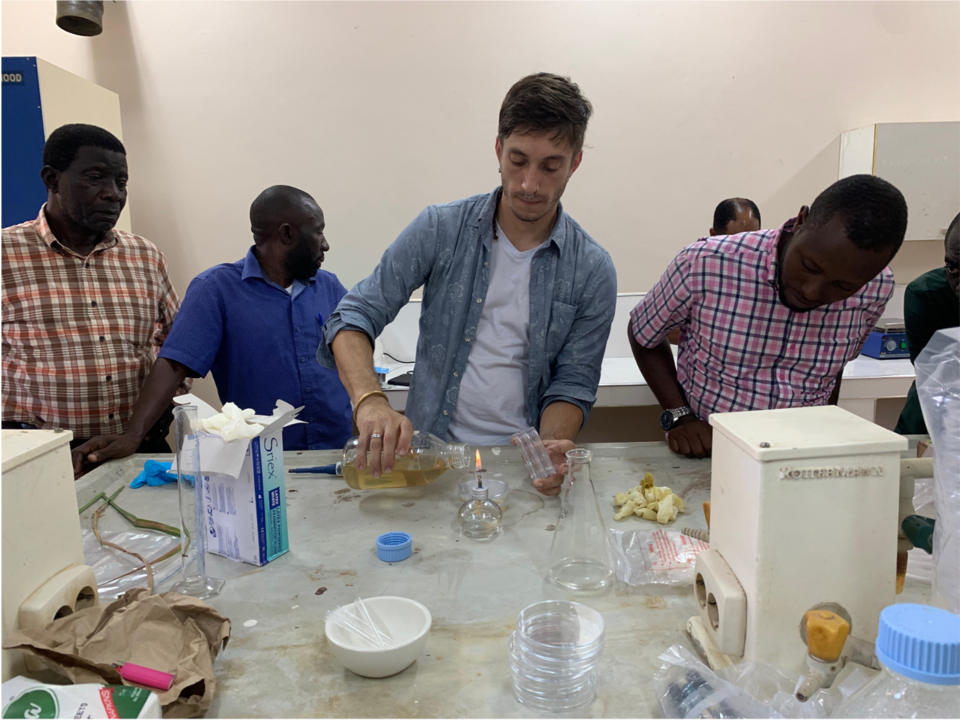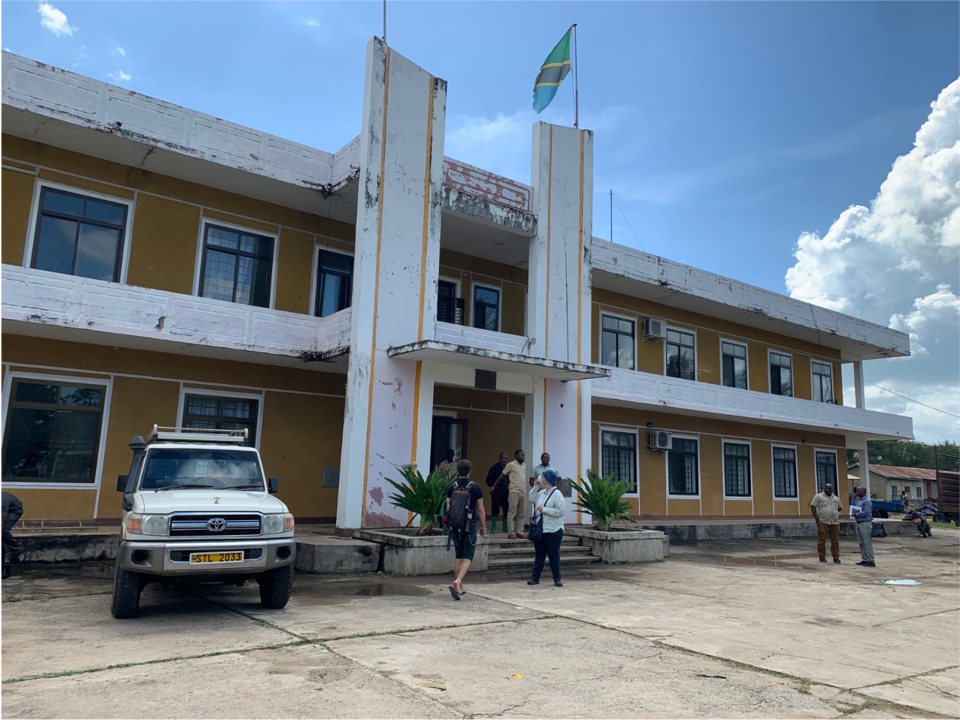The Healthy Crops team located at the French Research Institute for Development (IRD) has established a good relationship with scientists in East Africa, especially in Tanzania and Kenya for several years now. When a devastating outbreak of bacterial blight - a rice disease, affecting small scale producers around the globe - was discovered in the Tanzanian rice fields in 2019, it was clear that rapid action was needed to contain the spread of the disease as much as possible (outbreak published in eLife: https://doi.org/10.7554/eLife.84864). However, in order to effectively control the disease-causing bacteria of the family Xanthomonas oryzae pv. oryzae (Xoo), it is important to know exactly which bacterial strains we are dealing with.
Characterizing the bacterial strains not only gives researchers more information about the molecular mechanism by which they infect rice plants, but also gives farmers the opportunity to grow rice varieties in future with optimized resistance to the identified strains. Since the bacterial isolation from infected leaves, and the subsequent genotyping of bacterial strains, is a daily task for IRD staff, Florence Auguy, Gabriel Boulard and Dr. Boris Szurek (all IRD) traveled to East Africa to support the scientific staff of the Tanzania Agricultural Research institute (TARI) and the International Rice Research Institute (IRRI) in their sampling activities.
During their survey in Tanzania, the IRD team had the chance to visit the TARI station in Ifakara, where they met their colleague Dr. Ibrahim Hashim, IRD’s main partner in Tanzania and the coordinator for rice research at TARI. Dr. Hashim was one of the first scientists dispatched by the government to take a closer look at the newly occurring blight outbreak that many of the farmers in Southern Highlands were reporting. After meeting IRRI colleague Mohamed Mkuya, who was involved in the initial survey in 2019, the team used the chance to train the local staff at the Ifakara and Dakawa station in the isolation of Xoo from infected rice leaves. Ms. Auguy will revisit the Ifakara station in March 2024 to help Tanzanian scientists establish a modern laboratory for future micro- and molecular biological tasks. Furthermore, it is planned that TARI staff should in future also visit IRD in Montpellier, France to strengthen the scientific collaboration and continue to exchange their knowledge.
The next station on IRD’s journey was Kenya, where Dr. Szurek and his team visited the facilities of IRRI and the International Livestock Research Institute (ILRI). Here, Gabriel Boulard spent five more days at the facility to train one of Healthy Crops newest members, Everlyne Nganga from IRRI East Africa, in microbial isolation.
Through the joint action with TARI in Tanzania and IRRI in Kenya, Healthy Crops scientists hope to accelerate the elucidation of the infections in East Africa and work on a strategy to better control future outbreaks.
More information on our work can be found on the Healthy Crops website.



